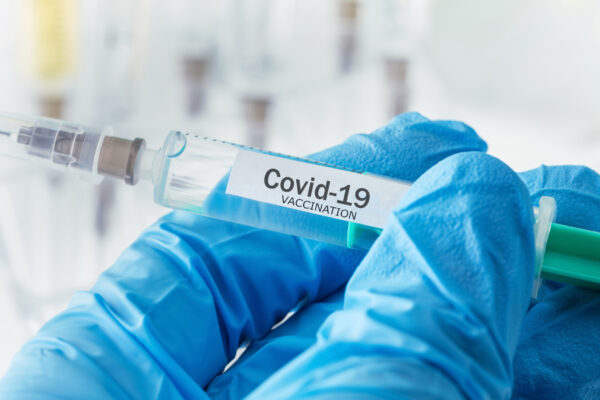
The Food and Drug Administration has released its guidance for issuing emergency use authorizations for vaccines to prevent Covid-19 as the White House has reportedly backed down from its objections.
The FDA issued the guidance Tuesday afternoon. Earlier in the day, The Wall Street Journal, citing people familiar with the matter, reported that the Trump administration had agreed to the FDA’s guidance on vaccines against the SARS-CoV-2 virus, making it likely that a vaccine would not be authorized until after the Nov. 3 election.
The news follows reports that President Donald Trump would seek to reject the FDA guidance, given his desire to have a vaccine cleared before Election Day. Trump and the administration have repeatedly inserted themselves into efforts to develop drugs and vaccines for Covid-19 since earlier this year, leading to significant concerns about the agency and the processes by which it authorizes medicines becoming subject to political interference.
On Tuesday, Pfizer CEO Albert Bourla wrote in a tweet, “Pfizer has never discussed [FDA’s Covid-19] vaccine guidelines with the White House and will never do so as it could undermine the agency’s independence.”
Pfizer, under a partnership with Germany-based BioNTech, is one of several companies developing a vaccine against SARS-CoV-2, in this case a messenger RNA-based vaccine called BNT162b2. Unlike most companies developing Covid-19 vaccines, Pfizer is not part of Operation Warp Speed and is not accepting government funding for its efforts, though BioNTech has accepted funding from government sources in Europe.
The guidelines that the FDA issued Tuesday make clear that the agency will apply rigorous standards to any vaccine it authorizes. Among other things, it is requiring that a sponsor submit data from at least one well-designed Phase III trial that demonstrates a vaccine’s safety “in a clear and compelling manner.” It also requires that data from Phase III studies include a median follow-up duration of at least two months after completion – including information on adverse events, severe Covid-19 disease cases among participants and cases of Covid-19 occurring during the period when adaptive rather than innate and memory immune responses would provide a protective effect. A submission should include all the safety data that have been collected up to the data lock, with information on well over 3,000 people who have received the vaccine.

A Deep-dive Into Specialty Pharma
A specialty drug is a class of prescription medications used to treat complex, chronic or rare medical conditions. Although this classification was originally intended to define the treatment of rare, also termed “orphan” diseases, affecting fewer than 200,000 people in the US, more recently, specialty drugs have emerged as the cornerstone of treatment for chronic and complex diseases such as cancer, autoimmune conditions, diabetes, hepatitis C, and HIV/AIDS.
“Being open and clear about the circumstances under which the issuance of an emergency use authorization for a Covid-19 vaccine would be appropriate is critical to building public confidence and ensuring the use of Covid-19 vaccines once available,” FDA Center for Biologics Evaluation and Research Director Peter Marks said in a statement. “The FDA’s new guidance on emergency use authorization of Covid-19 vaccines underscores that commitment by further outlining the process and recommended scientific data and information that would support an emergency use authorization decision.”
Trump lashed out at the new guidance in a tweet that tagged FDA Commissioner Stephen Hahn, calling them a “political hit job” and complaining that it would make it more difficult for the FDA to approve a vaccine before Election Day.
Photo: Teka77, Getty Images












